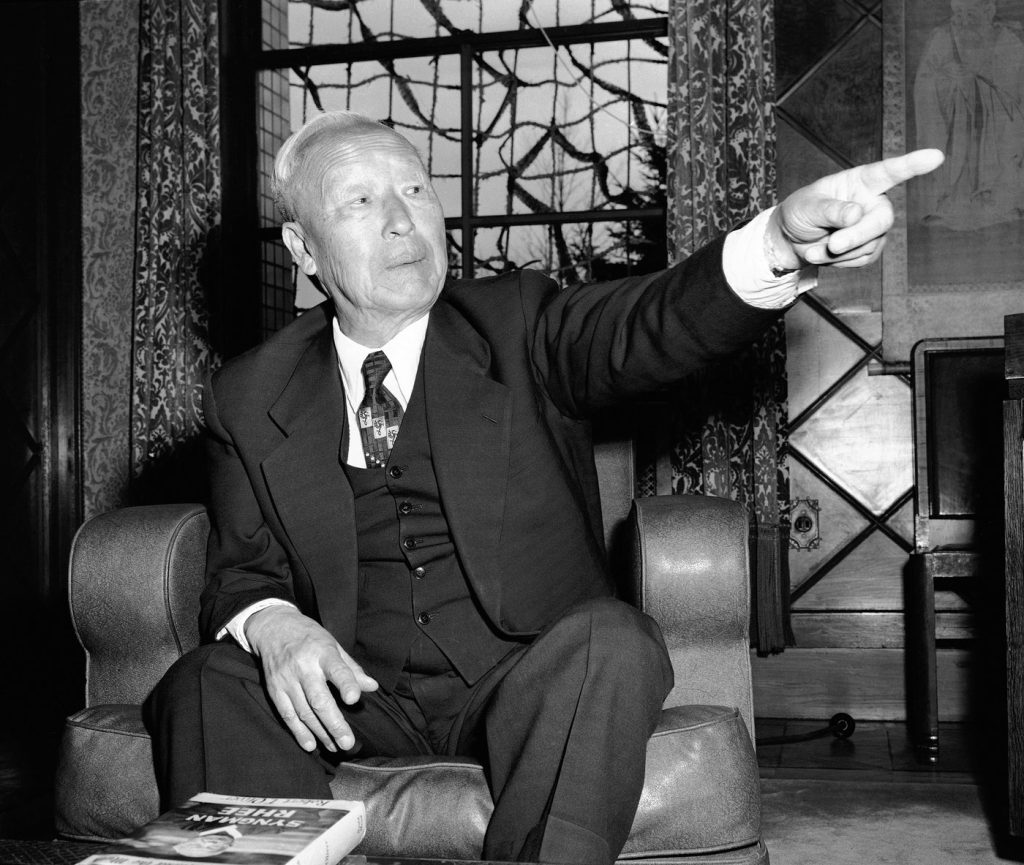SEOUL, South Korea (AP) — Yoon Suk Yeol was formally removed from his position as President of South Korea on Friday, following the Constitutional Court's decision to uphold his impeachment. This impeachment stemmed from Yoon's controversial decision to impose martial law in December 2024. His removal continues a troubling trend in South Korean politics, where multiple presidents have faced scandals or legal issues during or after their terms.
The ouster of Yoon comes eight years after the dismissal of Park Geun-hye, another conservative president, who was impeached over corruption charges and abuse of power. The history of South Korea’s leadership is rife with controversy, including coups, assassinations, and scandals involving presidents, their families, and close aides.
Syngman Rhee served as the first president of South Korea from 1948 to 1960. Rhee, supported by the U.S., became increasingly authoritarian, particularly following the Korean War. His administration faced widespread allegations of corruption and vote-rigging, ultimately leading to his exile in 1960 amid massive protests.
Following Rhee, General Park Chung-hee seized power in a coup in 1961. While he is credited with significant economic growth during the 1960s and 70s, he was also known for his brutal repression of dissent. Park was assassinated in 1979 by his own spy chief. His successor, Chun Doo-hwan, another army general, took control in a 1979 coup, facing severe public backlash, culminating in pro-democracy protests that forced a constitutional revision allowing direct elections by 1987. Chun was later convicted of various crimes, including corruption, before being pardoned.
In 1988, Roh Tae-woo became the first president elected through a democratic process in decades. Despite his election, he faced corruption charges alongside Chun after leaving office. Both were pardoned in 1997. Kim Young-sam, president from 1993 to 1998, initially garnered support for his anti-corruption efforts but left office amid a scandal involving his son's arrest for bribery.
Kim Dae-jung succeeded Young-sam in 1998, notable for his efforts to improve relations with North Korea, which earned him the Nobel Peace Prize in 2000. Yet, his presidency was also clouded by corruption scandals linked to his associates. Following him, Roh Moo-hyun, elected in 2002, promised to combat corruption but faced an impeachment that the Constitutional Court later overturned. Roh faced his own scandals and tragically died by suicide in 2009.
Lee Myung-bak, who served as president from 2008 to 2013, saw his popularity plummet due to unmet economic promises and free speech controversies. He was later convicted of multiple corruption offenses, leading to a 17-year prison sentence, though he was pardoned in 2022 by Yoon Suk Yeol.
Park Geun-hye was the first female president of South Korea, elected in 2012, but her presidency collapsed considerably following the 2014 ferry disaster and subsequent corruption allegations involving her close friend. She was impeached in 2017, removed from office, and served a reduced prison sentence before being pardoned by Moon Jae-in in December 2021.
Now, with Yoon Suk Yeol's presidency marking yet another chapter in South Korea’s turbulent political landscape, he faced impeachment after declaring martial law to suppress a legislative body he accused of being corrupt. His actions, deemed unconstitutional by the Constitutional Court, pave the way for a criminal trial where he remains vulnerable to significant legal repercussions devoid of presidential immunity.










